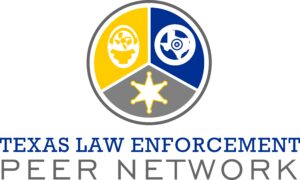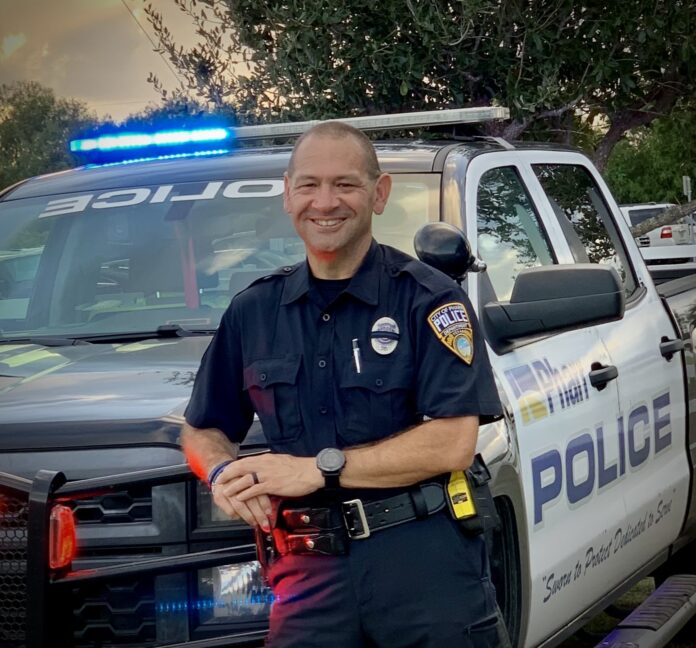A former Pharr police officer will lead a new center that hopes to help law enforcement officers deal with mental health issues.
Caruth Police Institute at the University of North Texas in Dallas selected Michael Mata as the first South Texas regional director for the Texas Law Enforcement Peer Network.
Mata, who served with the Pharr Police Department from 1998 to 2019, was selected to serve in the new position for the newly established Peer Network, which is working to provide support for police officers dealing with mental health issues.
The Peer Network came to fruition after the Texas Senate passed Senate Bill 64 last year. The bill was authored by state Sen. Jane Nelson, R-Flower Mound. Mata said that the program’s main goal is to offset suicides among law enforcement officers, which has become the most common cause of death among officers.
“There was a large amount of officers that were (dying by suicide),” Mata said. “The thing is that there wasn’t anything that the state of Texas was doing at the current time, so they decided that they needed to do something to save officers’ lives.”
As regional director, Mata will provide training and support for officers from Laredo to Houston, down to Brownsville. He said that a big problem faced by many in the law enforcement community is that many of those who are tasked with the duty to serve and protect struggle to find help for their own mental health needs.
 Mata said that officers are subject to a number of traumatic experiences while on the job — experiences that don’t disappear when they are off duty. He said that it is not uncommon for officers to experience post-traumatic stress disorder, which can lead to other issues like alcoholism when they are not able to get help.
Mata said that officers are subject to a number of traumatic experiences while on the job — experiences that don’t disappear when they are off duty. He said that it is not uncommon for officers to experience post-traumatic stress disorder, which can lead to other issues like alcoholism when they are not able to get help.
“Officers don’t ask for help,” Mata said. “They’re afraid to express themselves.”
He said that there is a negative stigma associated with law enforcement officers who struggle with mental health — an issue that is often perceived as a sign of weakness and potentially resulting in them being blacklisted by their fellow officers.
“That’s why the officers try to keep it within themselves,” Mata said. “They talk to their friends, and sometimes it could end up being a negative and not a positive influence. They’re just hurting themselves more by not getting the proper help that they need.”
Mata said that the Peer Network offers members of the law enforcement community an opportunity to speak to peer volunteers, fellow police officers from throughout the state who are trained to deal with mental health issues within their line of work and provide much needed support. He said that the program promises absolute anonymity.
Pharr Police Chief Andy Harvey commended Mata on his appointment as regional director and his commitment to mental health. Since taking the reins of the Pharr Police Department on July 13, 2020, Harvey has made mental health a priority for his department.
“When you have mentally healthy officers, then you have better officers,” Harvey said. “They’ll make better decisions, and that’s good for everybody. Because suicide is such a problem with us in policing, what happens is that police officers don’t trust many people. It’s in our DNA, we just don’t trust a lot of people.
“So when it comes to getting help, this Peer Network, we want it to be where they can be anonymous and they know that it’s one of their peers who has been trained and is willing to help.”
The Peer Network is set to launch on March 1, along with an app and a website that officers can utilize to acquire information and seek help for their struggles.
Harvey said that the goal is to eventually have every law enforcement officer in the state be a part of the network.
“We’re human. We have emotions. We have families,” Mata said. “We have bills to pay just like everybody else. We have standards that we have to keep up. You have to set the example and be a role model. Sometimes when officers are struggling, they don’t know who to go to. Now with the network, I can see that it’s going to be really good. We’re going to help a lot of people.
“We’re going to help people go home on a daily basis and not struggle with life — not ending their own lives.”





